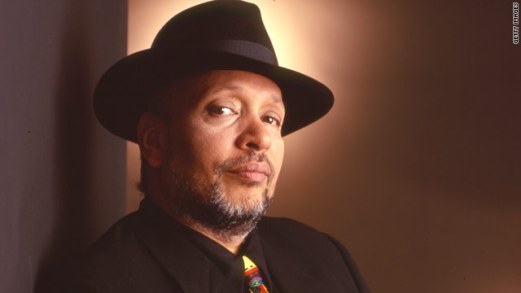Before retiring, I taught at a college in Detroit where the big event of the year was a Contemporary American Authors Lecture Series held each spring. This series brought in a guest African American writer each year to give a free public reading and hold a master class with our own and area high school students.
For nine years, I was chair of the English Department that hosted the event. That meant I was the emcee for the evening; my job was to preside over the gathering and, if necessary, introduce the writer.
One of the guest authors I introduced was Walter Mosley, author of the Easy Rawlins and Leonid McGill mystery series, among many other books.

Rarely had past writers (mostly literary novelists and poets) prompted the kind of passionate public excitement that Mosley did. For months leading up to the reading, phone calls flooded the department from the public as their anticipation mounted.
Among the callers were people wanting not only the usual information—time, place, and so on—but wanting also something more, wanting, if not needing, to talk about Mosley’s works . . . callers who were simply bursting to talk about their favorite characters with the stranger on the other end of the line; callers wanting to know which were my favorite books, and who I liked better, Easy Rawlins or Leonid McGill; callers wanting to know what did I think of that hussy Katrina and why would Leonid ever want to stay with her?
Clearly, his readership idolized him.
To prepare my introduction of him, I gave myself a crash course in Mosley’s works, reading deeply and broadly in all the series as well as the stand-alone books that he had published as of that point.
As a crime writer myself, I read with a double vision: looking for not only what I could use in my introduction of him, but also what I could learn from him for my own writing.
At the end of my reading project, I found much to learn, both in terms of what to do and what to avoid as an author.
I have to say that many aspects of his writing turned me off; the cliched uses of violence and sex, for example, as well as the (to me) annoying similarity of plots and situations from book to book, as when his main characters stop what they’re doing to explain where their next bit of wisdom came from.
Even so, Mosley’s good at what he does, and it was useful for me to understand why and how.
I came to see that Mosley’s work grabs his readers for many reasons. He pulls some in because of the powerhouse prose, the clarity and precision of his eye, the dialogue that crackles with authenticity. Others read him for his way with a story, for plots that hook readers from the first line and don’t let loose till the final page.
Still others loved seeing his strong black characters, male and female, negotiating their way through a complex and often dangerous world. His main characters—Easy, Socrates, Fearless, Leonid, and others—are so engaging because how they work the borderlands between communities serves as a metaphor for the complexities of race in America.
Still others loved the way the quests in his works are always, ultimately, about redemption.
Beyond that, what I learned as a writer had to do with technique: how to set up characters that are vivid and relatable, how to manage multiple plot lines, and how to move the story along quickly and effectively.
One of the things that struck me most about the phone calls that came in while we were preparing for his visit was the almost fanatical devotion his readers have to his characters. Mosley has an incredibly deft touch in populating his fiction with people whom his readers recognize from their own lives, and who fairly leap off the page.
He lets his characters—especially including his first-person narrators—talk in voices that are recognizable and real, and he paints thumbnail portraits of how they look and act, down to the nuanced shades of his characters’ skin tones, in ways that resonate strongly with his readership. He knows his audience and writes to them.
He also adroitly handles three, four, and five interrelated plot lines at a time. My metaphor for what he does is weaving different threads through the fabric of the books. For example, in his Leonid McGill series, main character McGill routinely has to negotiate his family dramas with his wife and children, his love life with his girlfriend, his two or three current cases, and the ever-present past that he struggles in vain to outrun and outfox.
Mosley’s books are busy without seeming overcrowded. I think that, too, partly contributes to the reality of his characters: life is like that.
Finally, for me his work is a master class in how to move those different plot threads along quickly, including the importance of starting scenes at the optimum moment, shaping them for maximum impact, and ending them with enough suspense to get the reader to turn the page; jumping into a chapter or section using a judicious exchange of dialogue or action; and using the transitions of getting the main character from one place to another efficiently.
As I sit down to write the mysteries in my Martin Preuss series, I find myself putting these lessons into practice time and again. It’s another reminder of how much we can glean from critically reading authors who are at the top of their craft.
Are there lessons you’ve learned from your favorite authors? I’d be interested in hearing about them.

